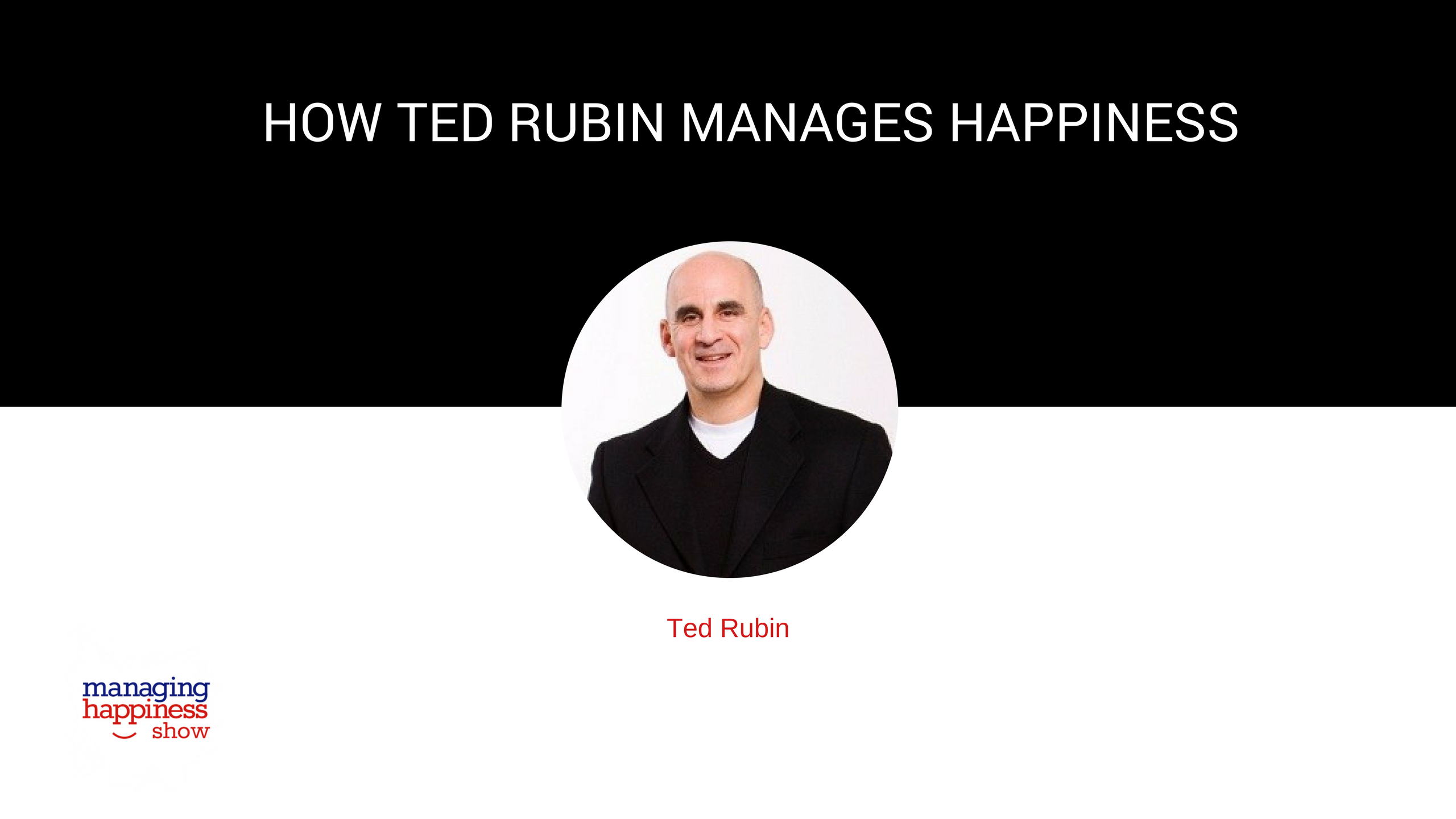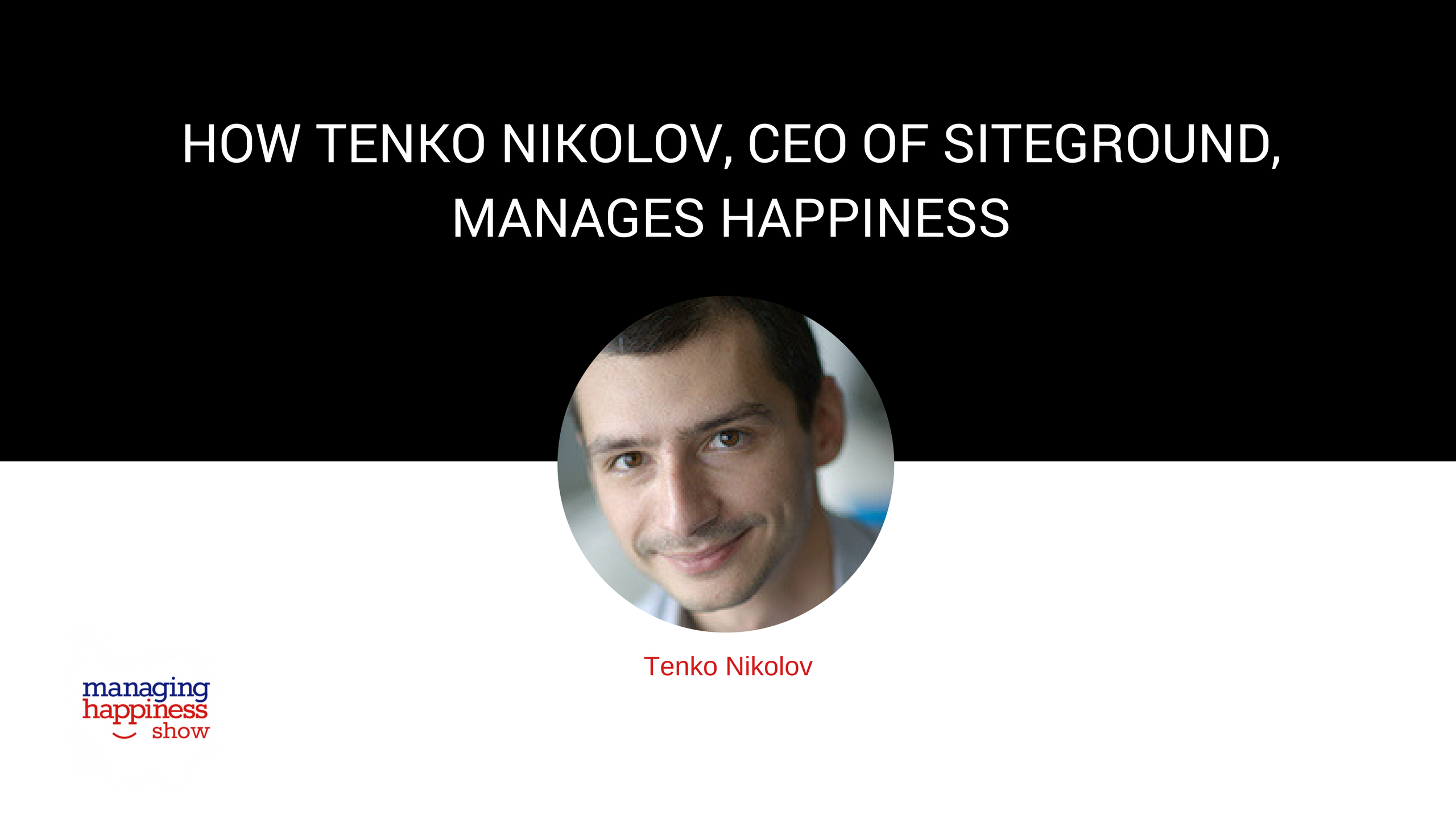Powered by RedCircle
EPISODE 10 of the Managing Happiness Show!
Ted Rubin is a successful marketer, entrepreneur and a master of making personal connections. He is the co-author of Return on Relationship and How to Look People in the Eye Digitally. Ted is a co-founder of Prevailing Path and a CMO of Brand Innovators. He is divorced with 2 daughters and in this interview, he tells the emotional and inspiring story of how he fought for the right to see his children.
About Ted Rubin
Ted Rubin is a world expert in relationship marketing, a leading social marketing strategist, and speaker. He used to be the principal shareholder of Collective Bias until the November 2016 acquisition by Inmar.
Ted is famous for his emblematic hashtags which grow into entire social movements. In March 2009 he started using and evangelizing the term Return on Relationship, hashtag #RonR. According to Ted, ROR is the value that is accrued by a person or brand due to nurturing a relationship.
Another popular hashtag by Ted is #ThisDadWontQuit, referring to the problematic relationship he had with his ex-wife and 2 daughters. In this interview, Ted opened up about the challenges he faced maintaining the relationship with his kids through his divorce and what kept him going despite all obstacles.
Vision, mission, and values
Ted admits that he doesn’t have a personal mission statement and he rarely lays out in writing his strategic plans, even in his business. Most of the planning happens in his head and he doesn’t share his thoughts with many people. Over the years, he has discovered that this approach works better for him and part of the reason is that he doesn’t believe in long-term planning. Especially, when it comes to one’s personal life, things change so fast, that you don’t have enough predictability to commit to goals which are too distant in the future.
Over the years, he has discovered that this approach works better for him and part of the reason is that he doesn’t believe in long-term planning. Especially, when it comes to one’s personal life, things change so fast, that you don’t have enough predictability to commit to goals which are too distant in the future.
Another argument against excessive planning is that many of the things we do in our day-to-day lives are dictated by the circumstances around us which we don’t control.
However, Ted uses a very creative way to express his values and beliefs. He creates his own #hashtags which are related to his life and play a similar role to a written vision or mission statement. He uses them a lot because, on one hand, they remind him of what he believes in, and on the other hand, they help him promote his ideas to the world.
Examples of such hashtags are #RonR (Return on Relationship), #ThisDadWontQuit and #NoLetUp. In the podcast, Ted shares in details the story of each of them.
Engaging socially in the digital world
Ted believes that people need to be more self-aware about how they create digital conversations and approach them the same way they approach face-to-face communication. All it takes is to show interest in the other person.
If you want to have a conversation, just click on this person’s LinkedIn profile or Facebook profile and mention something.
What happens is that most people neglect the importance of digital communication not realizing the opportunities they are missing.
What’s unfortunate is how really few people have bothered to take the time to understand how this engagement works.
Contrary to the common belief, Ted thinks that kids are the masters of communication nowadays. Most people judge Millennials for not having social skills, but what they don’t see is that Millenials communicate constantly and at scale, which is something unheard of before.
They are communicating at such a higher level than we ever communicated. Because it’s constant communication and it’s multiple communication.
The nightmare of divorce
In the podcast, Ted shares the emotional story of divorcing his ex-wife and all the obstacles he had to go through in order to stay in touch with his kids. He was banned from seeing his daughters, he was accused of harassing them and he faced serious financial issues.
Ted admits that if it wasn’t for the emotional and financial support from his closest circle of friends, he wouldn’t have made it through the divorce and the following crisis in his relationship with his daughters.
Ted has 3 pieces of advice to all the fathers out there who are getting divorced:
- Never give up any of your rights of your children, even if they tell you it is of their interest.
- Take as much of the stress off your kids as possible, even if it puts more on you. Anything you can do to make it easier for them, do it.
- If you have the right to spend time with your children, never miss it. Never miss your nights and weekends with them for whatever reason. If you do, all they will know is “Daddy is not here” and they won’t care why.
Ted has been rejected by his daughters many times but he keeps working on fixing their relationship. When his older daughter wanted to block his messages, he changed her mind saying:
After you call your mom, and your step dad, and you grandma, after you call everybody and they tell you that it’s too late, it’s too hard, it’s too much, it’s too far, you’ll call me and I’d say “Where do I have to be and when?”
One of the lessons that Ted has learned from this complicated family situation is the importance of expectations.
I’ve learned to change my expectations to find good in what I get.
Have you had a similar experience to Ted Rubin? Feel free to share your story in the comment section.




